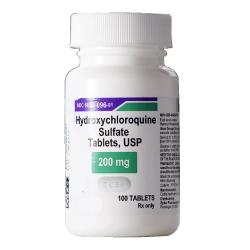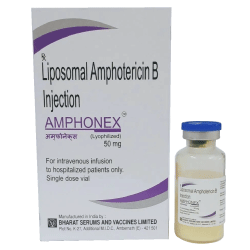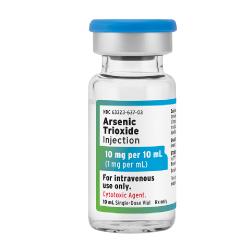Description
Hydroxychloroquine 200 mg tablets, also known as hydroxychloroquine sulfate is a 4-aminoquinoline and antimalarial families/class of drug, indicated for:
- Either prevention or treatment of malaria.
- Patients with rheumatoid arthritis and lupus erythematosus, especially chronic discoid lupus.
Dosage and Side Effects of Hydroxychloroquine tablets:
Hydroxychloroquine should be taken orally at about the same time each day, either with food or a glass of milk. Hydroxychloroquine should be swallowed whole with water. The tablets should not be opened, broken, or chewed.
The most common side effects of Hydroxychloroquine (adverse reactions) include:
-
- Malaria: abdominal cramps, headache, diarrhea, reduced appetite, nausea, heart problem, and vomiting.
- Lupus or Rheumatoid Arthritis: Pigmentation, acne, anemia, bleaching of hair, blisters in mouth and eyes, blood disorders, convulsions, vision difficulties, emotional changes, excessive coloring of the skin, itching, liver problems or liver failure, loss of hair, weakness, nightmares, psoriasis, reading difficulties, skin inflammation and scaling, skin rash, and weight loss.
- The most serious side effects affect the eye, with dose-related retinopathy as a concern even after the use of hydroxychloroquine is discontinued.
Warning and Precautions of Hydroxychloroquine tablets:
- In patients with mild and minor side effects such as occasional vomiting, diarrhea or nausea usually not necessary in order to stop the antimalarial drug. If you cannot tolerate your antimalarial drug, see your healthcare care provider; other antimalarial drugs are available.
- The continuous higher doses of Intraquin tablet for many years may lead towards a rare eye condition called retinopathy. People who take hydroxychloroquine for more than five years should get regular examination of eyes.
- Overdose of antimalarial tablets (drugs) particularly Intraquin tablets, can be fatal.
- Patients should be warned about driving and operating machinery since hydroxychloroquine 200 mg tablets can impair accommodation and cause blurring of vision.
- Intraquin tablets should be used with caution in patients with hepatic disease or alcoholism, in whom a reduction in dosage may be necessary, or in conjunction with known hepatotoxic drugs.
- Intraquin tablet sulphate should be avoided or not be recommended to individuals with known hypersensitivity to 4-Aminoquinoline compounds. Caution should be required if patients have diabetes or psoriasis or certain heart conditions.
- The effect of Intraquin tablets can be worse with the existing cases of both porphyria and psoriasis.
- Children are more vulnerable in order to develop adverse effects from Intraquin tablets.
- The effect of toxicity from Intraquin tablet may be seen in two distinct areas of the eye: the cornea and the macula. Eye screening is recommended, even in the absence of visual symptoms.
- Care should be required if Intraquin tablet combined with medication altering liver function as well as cimetidine (Tagamet) or digoxin (Lanoxin) or aurothioglucose (Solganal).
- Intraquin may increase the plasma concentrations of penicillamine which may contribute to the development of severe side effects.






